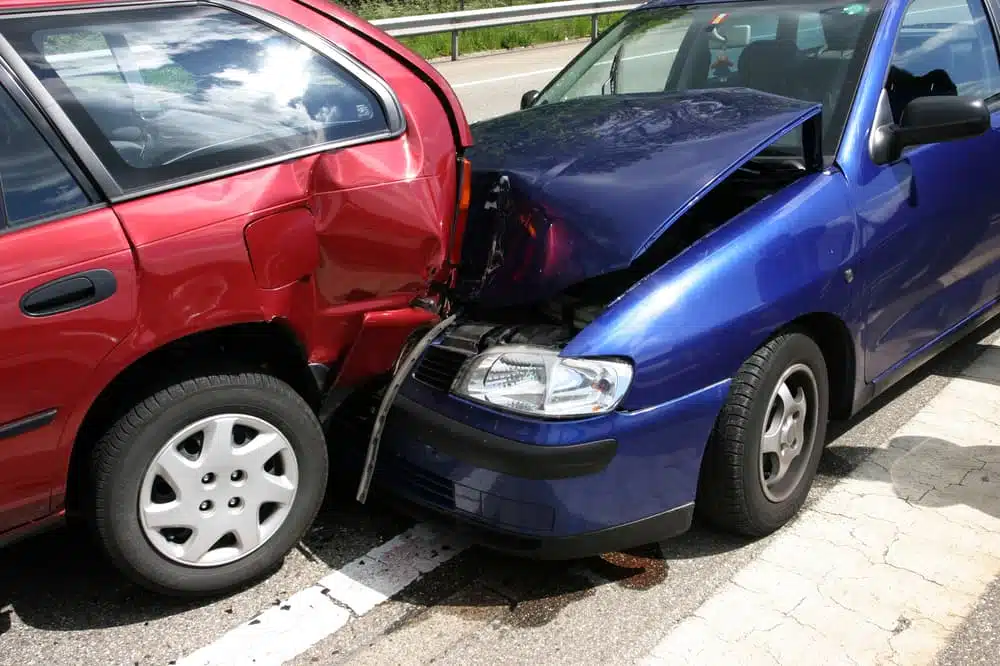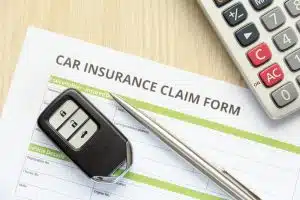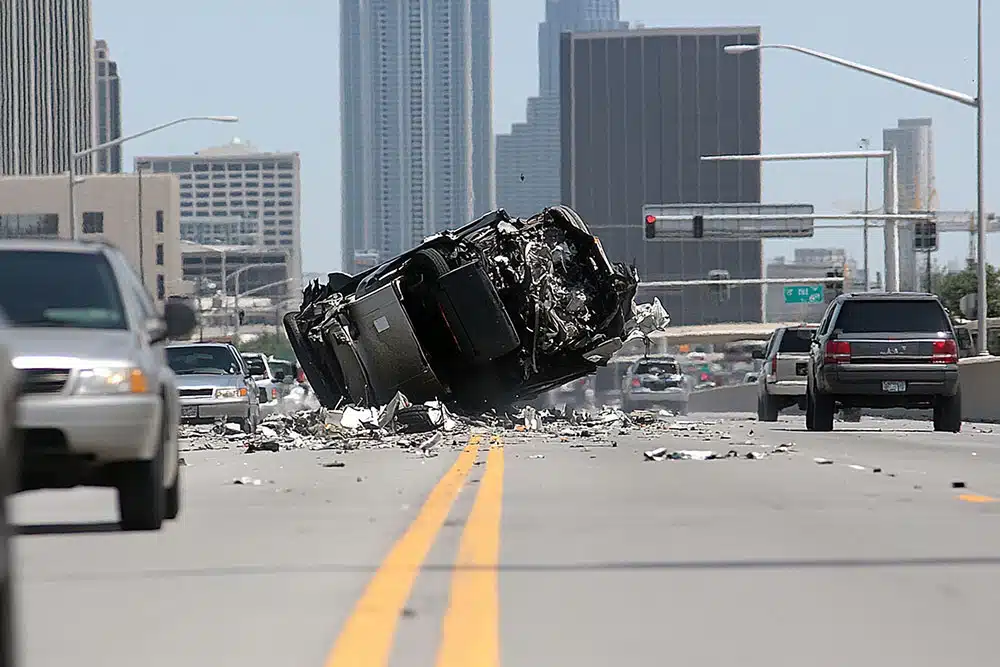
If you were involved in a car accident, especially one that injured you, it’s important to know what steps to take to ensure your safety and protect your interests. Whether it’s a minor fender bender or a more serious collision, taking the right actions can help protect your well-being and ensure a smooth claims process with your insurance company.
Read on to learn of the actions you should take following a car accident. For specific information regarding your situation, reach out to an experienced car accident attorney near you for a free consultation.
Stay Calm and Assess the Situation
Keep a level head and assess the situation calmly. Make your first priority the safety of yourself, your passengers, and others involved in the accident.
If it’s safe to do so, move your vehicle to the side of the road or a safe location away from traffic. Turn on your hazard lights to warn other drivers of the accident. Take a moment to collect yourself and focus on what needs to be done.
Determine the Extent of the Accident
Take a careful look at the vehicles involved and assess the extent of the damage. Although most state laws don’t require you to report the accident to police if it’s a minor accident with no injuries and minimal damage, you should still call the police anyway so they can generate a report.
If there are injuries or significant damage, call the police and report the accident. In fact, most states require you to report an accident resulting in injuries, fatalities, or considerable property damage.
A police report will contain vital information about the cause of the crash as well as the officer’s opinion as to who was at fault. This information can serve as critical evidence in your injury claim.
Get Medical Attention
If you or anyone else involved in the accident requires immediate medical attention, call for an ambulance or ask someone at the scene to call for help. Never underestimate injuries, even if they seem minor at first.
Not all injuries present symptoms right away, and a medical evaluation can rule out any internal injuries or other issues that may cause problems later. Also, you will need documentation you sustained an injury and received treatment to file an injury claim.
Stay at the Scene, if Possible
Remember to stay at the scene of the accident unless it’s absolutely necessary to leave. Leaving the scene of an accident, especially if there are injuries, can have serious legal consequences. If the driver who caused the accident fled the scene, contact the police immediately to report them.
Gather Information and Document the Accident
After a car accident, it’s crucial to gather important information about the incident. This will help ensure you have the necessary documentation to support your car accident claim.
Here are the essential steps you need to take:
- Exchange Contact and Insurance Details: Obtain the name, phone number, and insurance information of the other driver involved in the accident. Provide them with your details as well.
- Take Photos of the Scene: Use your smartphone or camera to capture clear images of the accident scene, including the vehicles involved, any visible damages, road conditions, and any relevant traffic signs or signals. These photos will serve as valuable evidence later.
- Collect Witness Statements: If there were any witnesses to the accident, approach them and request their contact information. Their statements may be crucial in determining liability or providing additional details about the incident.
Remember, every detail counts when it comes to resolving the aftermath of a car accident. So, the more evidence and information you can collect, the better.
Notify Your Insurance Company and Initiate the Claims Process
Once you ensure your safety and gather all the necessary information, promptly notify your insurance company about the car accident. Reporting the incident and initiating the claims process promptly will expedite the resolution of your claim.
When contacting your insurance company, have the following information readily available:
- Your policy number
- Date, time, and location of the accident
- Details of the accident, including how it occurred
- Information about the other parties involved, such as their names, contact information, and insurance details
During the claims process, your insurance company may request additional information or documentation, such as:
- Police report
- Medical records and expenses related to any injuries sustained
- Estimates for car repairs
- Photographs of the accident scene and the damages to your vehicle
- Witness statements, if available
Effective communication with your insurance company is crucial. Be honest and accurate when providing information and keep a record of all interactions, including the names of the representatives you speak with, dates, and summaries of the conversations.
It’s important to follow any instructions provided by your insurance company throughout the claims process. Failure to do so may delay or affect the outcome of your claim.
However, don’t say too much to the insurance company or make statements that they could misinterpret as your admitting fault. Don’t apologize for the crash or make any unfounded statements regarding fault. Never offer a recorded statement to either your own insurance company or the at-fault driver’s insurance company.
In fact, you shouldn’t deal with the insurance company at all and have an attorney handle communications for you. If an insurance company contacts you, defer them to your attorney.
A lawyer will understand the defense tactics insurance companies use to reduce or deny claims and can counteract their defense through evidence and documentation. Your lawyer can also field questions about the crash to prevent you from inadvertently saying something that jeopardizes your claim.
Contact a Car Accident Attorney
Consulting an attorney after a car accident is a prudent decision. No matter how serious your injuries, hire an attorney to protect your rights and interests.
However, in some scenarios, seeking legal representation is vital, such as:
- Serious Injuries: If you or a family member involved in the accident sustained serious injuries, consulting an attorney can help you understand your rights and options for compensation.
- Disputed Liability: When there is a dispute regarding who is at fault for the accident, an attorney can help gather evidence and build a strong case to protect your interests.
- Complex Circumstances: If the accident involves multiple parties, unclear liability, or complicated circumstances, an attorney can navigate the complexities of the legal process.
- Insurance Challenges: If you encounter difficulties with your insurance claim, such as denial or insufficient compensation, an attorney can negotiate on your behalf and advocate for a fair settlement.
- Wrongful Death: In cases where the accident results in the loss of a loved one, consulting an attorney can be essential to pursue a wrongful death claim.
- Negotiating with Insurance Companies: Insurance companies may try to minimize payouts. An attorney can help negotiate with the insurance company to ensure you receive fair compensation for damages and injuries.
- Legal Procedures and Deadlines: If you are unfamiliar with legal procedures or if there are strict deadlines for filing a lawsuit in your jurisdiction, an attorney can guide you through the process and ensure you meet all requirements.
- Uninsured or Underinsured Motorists: If the at-fault party is uninsured or underinsured, your attorney can explore options for compensation, including coverage from your own insurance policy.
- Non-Economic Damages: If the accident has caused emotional trauma, pain and suffering, and other adverse impacts on your life, an attorney can help quantify and pursue compensation for these damages.
Before hiring an attorney, you can often schedule a free consultation to discuss the specifics of your case. A lawyer can guide you on whether you need legal representation and how they can assist you in navigating the legal process after a car accident.
What Compensation Can I Recover from a Car Accident Claim?
The compensation you can recover from a car accident claim depends on various factors, including the extent of your injuries, property damage, and the circumstances of the accident.
Here are common types of compensation that may be available:
- Medical Expenses: Coverage for medical bills, including hospitalization, surgery, medication, rehabilitation, and ongoing medical care related to the accident.
- Lost Wages: Compensation for income lost due to time away from work during recovery, including potential future income losses if your ability to work is affected.
- Property Damage: Reimbursement for the repair or replacement of your vehicle and any other personal property damaged in the accident.
- Pain and Suffering: Compensation for the ongoing physical and emotional pain and suffering the accident and your injuries have caused.
- Emotional Distress: Damages for psychological trauma resulting from the accident, such as anxiety, depression, or post-traumatic stress disorder (PTSD).
- Loss of Consortium: Compensation for the negative impact the accident has on your relationships, including loss of companionship or support.
- Disability or Disfigurement: Additional compensation for permanent disabilities, impairments, or disfigurement resulting from the accident.
- Wrongful Death Damages: If a loved one dies as a result of the accident, the surviving family may be entitled to compensation for funeral expenses, loss of financial support, and loss of companionship.
- Punitive Damages: In cases of extreme negligence or intentional misconduct, the court may award punitive damages to punish the at-fault party and deter similar behavior.
- Out-of-Pocket Expenses: Reimbursement for miscellaneous expenses incurred as a result of the accident, such as transportation costs, home modifications, or assistive devices.
The availability and amount of compensation can vary based on state laws, insurance coverage, and the specific details of the case. An experienced personal injury attorney can explain your rights, assess the value of your claim, and negotiate with insurance companies to ensure you receive fair compensation.
How Do I Know If I Have a Valid Car Accident Claim?
Determining whether you have a valid car accident claim involves assessing various factors. One of the most important concepts to establish is the other driver’s negligence in causing the accident.
Work with a car accident attorney who can prove negligence and establish liability by showing:
- Duty of Care: The at-fault party must have owed you a duty of care. In the context of car accidents, all drivers have a duty to operate their vehicles with reasonable care and follow traffic laws.
- Breach of Duty: Your lawyer must demonstrate that the defendant breached the duty of care. This means showing that the defendant’s actions or failure to act fell below the standard of care expected of a reasonable person in similar circumstances. Texting while driving, drunk driving, speeding, and running red lights are all examples of how drivers can breach their duty of care.
- Causation: There must be a direct link between the defendant’s breach of duty and the injuries you sustained. Your attorney must establish that the defendant’s actions were the proximate cause of the accident and resulting harm.
- Damages: To pursue a negligence claim, you must have suffered actual damages, such as physical injuries, property damage, medical expenses, lost wages, or pain and suffering. Damages serve as the basis for seeking compensation.
If your attorney can prove all four elements, you likely have a strong injury claim. However, you need to discuss your case with a qualified car accident attorney as soon as possible.
How Long Do I Have to Sue the At-Fault Driver in Court?
Each state has its own statute of limitations that sets a deadline for filing a lawsuit in civil court. For example, both New Jersey and Pennsylvania allow you two years from the date of the accident to file suit in civil court, and New York allows you three years.
If you don’t have an attorney file a lawsuit for you within your state’s statute of limitations, the court may dismiss your case, and you’ll lose your right to pursue compensation from the courts.
Contact an Experienced Car Accident Attorney Today

Allen L. Rothenberg, Esq., Car Accident Lawyer
You want to build the strongest case possible to increase your chances of recovering maximum compensation for the injuries and losses you suffered in a car accident. The personal injury attorneys at The Rothenberg Law Firm Accident and Injury Lawyers have decades of combined experience in personal injury law, and we’ve recovered substantial settlements and verdicts for our clients.
Contact us today to request a free consultation and let us help you determine whether you have a valid claim. If so, you can rely on us for assertive and personalized representation to help you get the full financial recovery you deserve.






